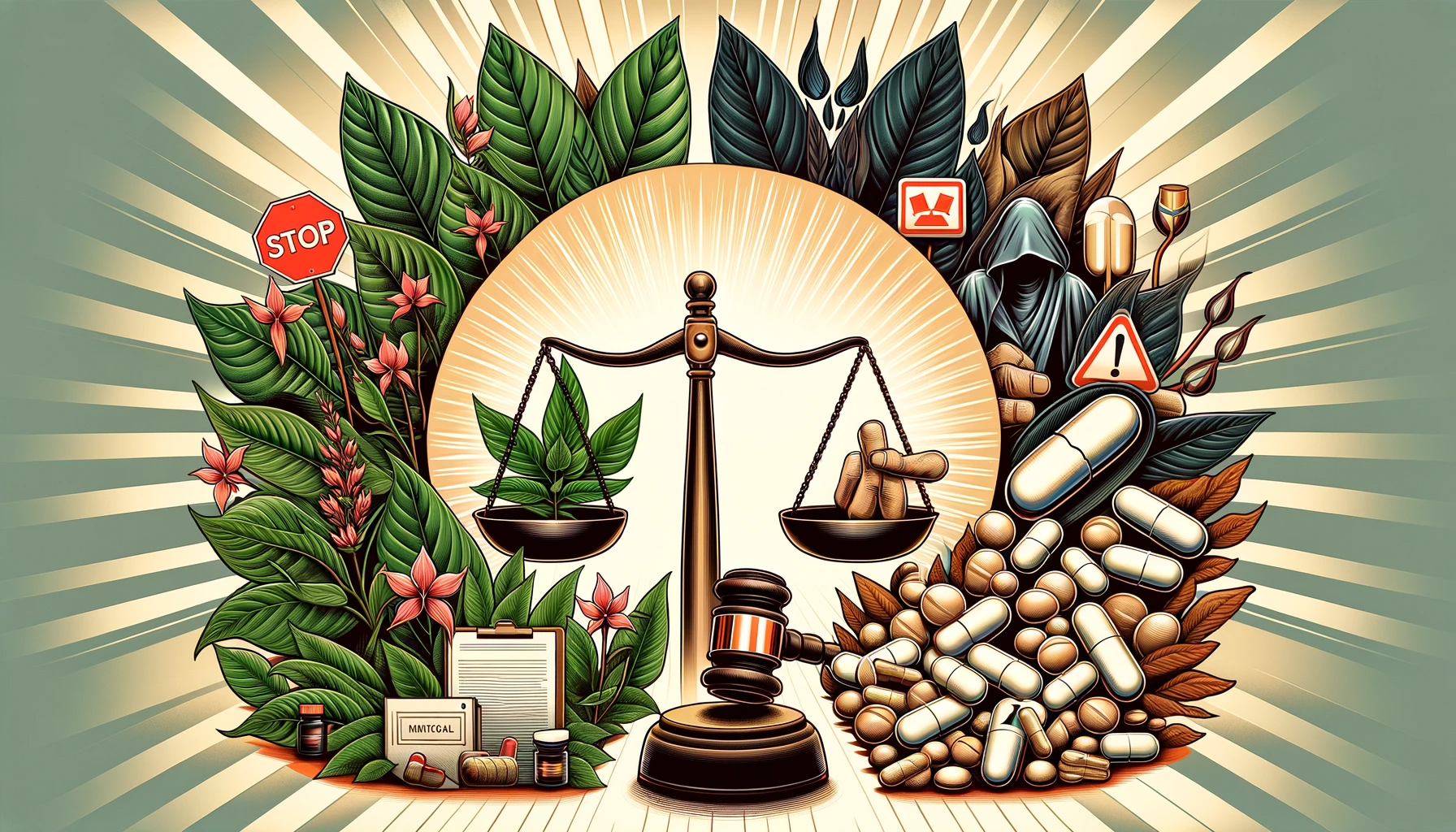Kratom, a tropical tree native to Southeast Asia, has become increasingly popular in the United States for its purported pain-relief and mood-enhancing effects. However, its legal status remains a complex and evolving issue, varying significantly from state to state. This article provides an in-depth look at the legality of kratom across the United States, examining federal perspectives, state-specific bans, and the reasons behind the legal controversy surrounding this substance.
Federal Perspective on Kratom
The Drug Enforcement Administration (DEA) and the Food and Drug Administration (FDA) have expressed concerns about kratom’s safety and potential for abuse. Although the DEA considered listing kratom as a Schedule I controlled substance (a category for drugs with no currently accepted medical use and a high potential for abuse) in 2016, significant public backlash led to the withdrawal of this proposal.
DEA Announcement, 2016: “The DEA is withdrawing its notice of intent to put kratom into Schedule I of the Controlled Substances Act in order to gather more public comments.”
As of now, kratom remains unscheduled at the federal level, though the FDA has issued warnings about its safety and has taken action against companies making unproven health claims about kratom products.
States Where Kratom is Illegal
Despite its legal status at the federal level, several states have enacted laws specifically banning the sale, possession, and use of kratom, citing public health and safety concerns. As of my last update, the states where kratom is illegal include:
- Alabama: Classified kratom as a Schedule I controlled substance in 2016.
- Arkansas: Added kratom to the list of controlled substances in 2016.
- Indiana: Kratom is banned under its synthetic drug law, despite kratom not being synthetic.
- Rhode Island: Banned kratom by regulating its two primary alkaloids as controlled substances.
- Vermont: Classified one of the primary alkaloids in kratom as a regulated hallucinogenic drug.
- Wisconsin: Kratom’s primary alkaloids are listed as Schedule I controlled substances, making kratom products illegal.
Reasons Behind the Bans
States that have banned kratom often cite the lack of FDA approval and potential health risks as primary reasons. Concerns include the possibility of addiction, toxicity, and even death from overdose or interaction with other substances. Proponents of kratom, however, argue for its natural pain-relief properties and advocate for regulated, legal use.
Legal Kratom Use in Other States
In states where kratom is not explicitly banned, it is legal to sell, possess, and use, although some may have age restrictions or local ordinances affecting its sale. The legal landscape is continuously changing, with ongoing debates about regulation, safety, and potential medicinal uses.
Conclusion
The legality of kratom in the United States is a complex and dynamic issue, with a significant divide between federal caution and state-level bans versus advocacy for its benefits and calls for regulation rather than prohibition. As research into kratom’s effects and potential medical applications continues, the legal status of kratom may evolve, reflecting new scientific findings and public opinion. Individuals interested in using kratom should stay informed about the laws in their state and any future changes to its legal status.
References
- Drug Enforcement Administration (DEA) Public Statement on Kratom: https://www.dea.gov
- Food and Drug Administration (FDA) Kratom Information: https://www.fda.gov









Leave a Reply